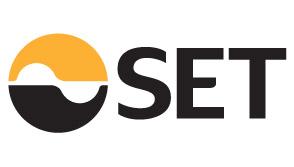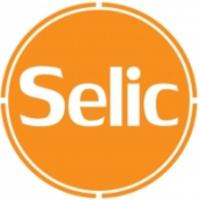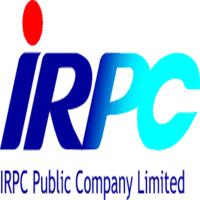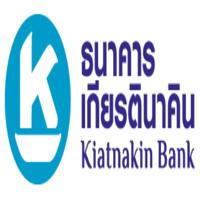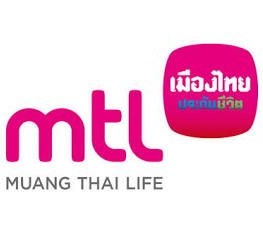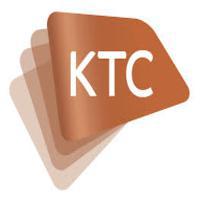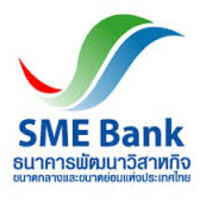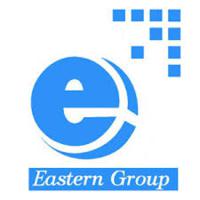- Details
- Category: บทความการเงิน
- Created: Thursday, 29 September 2016 21:55
- Hits: 9463

ไอบีเอ็ม ชี้ธนาคารและธุรกิจการเงินตื่นตัวใช้บล็อกเชนสูงเกินคาด ธนาคารร้อยละ 15 เล็งเริ่มใช้ภายในปีหน้า ขณะร้อยละ 65 วางแผนปั้นผลิตภัณฑ์-บริการจริงภายใน 3 ปี
ไอบีเอ็มเผยบล็อกเชนมาเร็วเกินคาด พบกลุ่มธนาคารและธุรกิจการเงินเร่งหาแนวทางนำโซลูชั่นบล็อกเชนมาปรับใช้ โดยร้อยละ 15 ของธนาคารและร้อยละ 14 ของสถาบันการเงินที่สำรวจ เตรียมเริ่มดำเนินการใช้โซลูชั่นบล็อกเชนภายในปี 2560 ขณะที่ธนาคารร้อยละ 65 วางแผนเริ่มพัฒนาผลิตภัณฑ์และบริการจริงภายใน 3 ปี
ผลการศึกษาล่าสุด 2 ชิ้น โดยสถาบันการศึกษาคุณค่าทางธุรกิจของไอบีเอ็ม (IBM Institute for Business Value) ที่สำรวจธนาคารทั่วโลก 200 แห่ง [1] และสถาบันการเงิน 200 แห่งทั่วโลก [2] ระบุว่าร้อยละ 70 ของกลุ่ม ‘ผู้บุกเบิก’ ต่างกำลังให้ความสำคัญกับบล็อกเชนในแง่เครื่องมือที่จะช่วยทะลายอุปสรรคที่มีอยู่ปัจจุบัน เพื่อนำสู่โมเดลทางธุรกิจและตลาดใหม่ๆ โดยกลุ่มผู้บุกเบิกเหล่านี้มีการเตรียมความพร้อมที่จะต่อกรกับคู่แข่ง ไม่เฉพาะคู่แข่งหน้าเดิมแต่รวมไปถึงกลุ่มที่ก้าวล้ำอย่างสตาร์ทอัพ โดย 7 ใน 10 ของผู้บุกเบิกในกลุ่มสถาบันการเงินให้ความสำคัญกับการนำบล็อกเชนไปใช้ใน 4 ด้าน คือ การชำระราคาและส่งมอบหลักทรัพย์ การชำระเงินขายส่ง ผู้ถือหุ้นและการออกตราสารหนี้ รวมถึงบริการด้านแหล่งข้อมูลอ้างอิง
“การเป็นผู้บุกเบิกที่เริ่มใช้เทคโนโลยีบล็อกเชนนำสู่ประโยชน์หลายด้าน ตั้งแต่การเป็นผู้กำหนดมาตรฐานทางธุรกิจและโมเดลทางธุรกิจใหม่ๆ ที่จะใช้ในอนาคต รวมถึงการสกัดกั้นคู่แข่ง เพราะกลุ่มผู้บุกเบิกมักสามารถคาดการณ์ปัญหาที่อาจทำให้ธุรกิจหยุดชะงักได้ดีกว่า” นายสวัสดิ์ อัศดารณ รองกรรมการผู้จัดการใหญ่ ธุรกิจการเงินและประกันภัย บริษัท ไอบีเอ็ม ประเทศไทย กล่าว
กลุ่มผู้บุกเบิกในแวดวงธนาคาร
ผลสำรวจยังเผยให้เห็นว่าธนาคารขนาดใหญ่ที่มีบุคลากรมากกว่าแสนคนกำลังเป็นผู้นำในการเปิดรับเทคโนโลยีบล็อกเชน แทนที่จะเป็นกลุ่มสตาร์ทอัพหรือองค์กรด้านเทคโนโลยีทางการเงิน (FinTech) ขนาดเล็ก โดยร้อยละ 77 ของธนาคารขนาดใหญ่กลุ่มนี้เป็นธนาคารที่ให้บริการลูกค้ารายย่อย
กลุ่มผู้บุกเบิกเหล่านี้คาดหวังถึงประโยชน์ที่จะได้รับจากเทคโนโลยีบล็อกเชน อาทิ บริการด้านแหล่งข้อมูลอ้างอิง (ร้อยละ 83) การชำระเงินค้าปลีก (ร้อยละ 80) และการให้กู้ยืมเงินแก่ลูกค้ารายย่อย (ร้อยละ 79) โดยร้อยละ 80 ของธนาคารที่สำรวจมองว่าจะมีการเกิดโมเดลธุรกิจใหม่ๆ ที่ใช้บล็อกเชนเป็นพื้นฐาน โดยเฉพาะในกลุ่มการค้าระหว่างประเทศ สินเชื่อธุรกิจ และบริการด้านแหล่งข้อมูลอ้างอิง
กุญแจสู่ความสำเร็จ
กลุ่มธนาคารผู้บุกเบิกมองว่าแม้บล็อกเชนจะเป็นเครื่องมือที่นำสู่โมเดลและตลาดธุรกิจใหม่ๆ แต่การนำมาใช้จริงก็มีอุปสรรคอยู่ไม่น้อย โดยอุปสรรคที่สำคัญที่สุดคือข้อบังคับต่างๆ (ร้อยละ 56) รองลงมาคือเทคโนโลยีที่ยังไม่สมบูรณ์พอ (ร้อยละ 54) และรูปแบบการวัดผลตอบแทนจากการลงทุนที่ยังไม่ชัดเจนนัก (ร้อยละ 52)
ผลสำรวจดังกล่าวยังแนะนำให้องค์กรที่ต้องการนำบล็อกเชนมาใช้ เริ่มตันด้วยการตั้งคำถามกับตัวเอง 3 ข้อ คือ
1. องค์กรจะต้องเร่งเดินหน้าเร็วแค่ไหน?
การออกตัวแรงของกลุ่มผู้บุกเบิกถือเป็นบทเรียนสำคัญที่ตอกย้ำให้ผู้เล่นที่ต้องการเจาะลูกค้ากลุ่มใหญ่ต้องเรียนรู้และเตรียมพร้อมบุกตลาดให้เร็วที่สุด และต้องไม่ลืมที่จะตระหนักว่าสิ่งที่กลุ่มบุกเบิกเริ่มทำย่อมมีส่วนในการโน้มนำการกำหนดข้อบังคับต่างๆ ที่เกี่ยวข้อง
2. องค์กรจะสามารถเพิ่มจำนวนผู้ใช้บริการผ่านเครือข่ายทางธุรกิจต่างๆ ได้อย่างไร?
เมื่อมีการใช้เทคโนโลยีบล็อกเชนในวงกว้าง กลุ่มธนาคารและสถาบันการเงินต่างๆ จะสามารถสร้างเครือข่ายทางธุรกิจที่ช่วยลดแรงต้านที่เป็นอุปสรรคต่อการเติบโตได้ เพราะกลุ่มนี้ได้มีการกำหนดมาตรฐานทางธุรกิจและเทคโนโลยีที่จำเป็นสำหรับการขยายการใช้บล็อกเชนไว้แล้ว ผู้เล่นที่ต้องการให้บริการเกี่ยวกับบล็อกเชนแก่กลุ่มผู้ใช้ขนาดใหญ่ควรรวมตัวและสร้างสัมพันธภาพที่ดีกับกลุ่มผู้บุกเบิก
3. องค์กรจะสร้างสรรค์นวัตกรรมด้วยโมเดลรายได้แบบใหม่ได้อย่างไร?
เมื่อมีผู้เล่นหน้าใหม่และโมเดลทางธุรกิจใหม่ๆ เกิดขึ้น ธนาคารจะจำเป็นต้องหาทางรักษารายได้หลักในปัจจุบันเอาไว้ หรือแสวงหาแหล่งรายได้ใหม่ โมเดลรายได้รูปแบบใหม่จะต้องมองไปไกลถึงแนวโน้มธุรกิจที่จะเกิดขึ้นในวันนี้และอนาคต โดยเทคโนโลยีบล็อกเชนจะเพิ่มช่องทางรายได้ใหม่อย่างน้อยหนึ่งช่องทางให้กับองค์กร ขณะที่รายได้จากบริการด้านแหล่งข้อมูลอ้างอิงน่าจะเป็นแหล่งรายได้ก้อนใหญ่ เหล่านี้เป็นสิ่งที่ธนาคารควรตระหนัก
ที่ผ่านมาไอบีเอ็มได้เปิดให้บริการโซลูชั่นและการให้คำปรึกษาเกี่ยวกับบล็อกเชน และพยายามอย่างต่อเนื่องที่จะพัฒนาเทคโนโลยีที่เกี่ยวกับบล็อกเชนเพื่อลดความซับซ้อนและเปิดให้ใช้งานได้ในวงกว้าง นอกจากนี้ยังได้ร่วมสนับสนุนเทคโนโลยีโอเพ่นซอร์สแก่ไฮเปอร์เล็ดเจอร์แฟบริค และเปิดให้บริการบล็อกเชนบนแพลตฟอร์มคลาวด์บลูมิกซ์ เพื่อให้นักพัฒนาสามารเข้าไปทดลองใช้ได้ ทั้งนี้ กลุ่มธุรกิจการเงิน การจัดการโซ่อุปทาน อินเตอร์เน็ตอ็อฟธิงส์ การบริหารความเสี่ยง การบริหารจัดการสิทธิทางข้อมูล และธุรกิจการดูแลสุขภาพ คือกลุ่มธุรกิจที่คาดว่าจะมีความเปลี่ยนแปลงเกิดขึ้นอันเป็นผลมาจากการใช้บล็อกเชน
อ่านผลการศึกษาฉบับเต็ม ในหัวข้อ 'ผู้บุกเบิกออกตัวแรง ก้าวเป็นผู้นำของกลุ่มธนาคารที่ใช้บล็อกเชน'(Leading the Pack in Blockchain Banking: Trailblazers Set the Pace) ได้ที่ http://ibm.biz/blockchainbank และในหัวข้อ 'ผู้บุกเบิกขึ้นนำ บล็อกเชนต่อสายไฟใหม่ให้ตลาดการเงิน'(Blockchain Rewires Financial Markets: Trailblazers Take the Lead) http://ibm.biz/blockchainfm
[1] ผลการศึกษาในหัวข้อ 'ผู้บุกเบิกออกตัวแรง ก้าวเป็นผู้นำของกลุ่มธนาคารที่ใช้บล็อกเชน'(Leading the Pack in Blockchain Banking: Trailblazers Set the Pace)
[2] ผลการศึกษาในหัวข้อ'ผู้บุกเบิกขึ้นนำ บล็อกเชนต่อสายไฟใหม่ให้ตลาดการเงิน'(Blockchain Rewires Financial Markets: Trailblazers Take the Lead)
Blockchain Adoption Moving Rapidly in Banking and Financial Markets: Some 65 Percent of Surveyed Banks Expect to be in Production in Three Years
Two new IBM studies show banks and financial market leaders look to blockchain to create new business models and anticipate disruption
Bangkok, Thailand: Commercial blockchain solutions are rapidly being adopted throughout banking and financial markets, dramatically faster than initially expected, finds two new IBM (NYSE: IBM) studies. Fifteen percent of banks and 14 percent of financial market institutions interviewed by IBM intend to implement full-scale, commercial blockchain solutions in 2017. Mass adoption isn’t that far behind with roughly 65 percent of banks expecting to have blockchain solutions in production in the next three years.
The new IBM study, "Leading the Pack in Blockchain Banking: Trailblazers Set the Pace (1)” is based on a survey of 200 global banks. A second new IBM study, 'Blockchain Rewires Financial Markets: Trailblazers Take the Lead (2),'is based on a survey of 200 global financial markets institutions.
Conducted by the IBM Institute for Business Value (IBV), the banking study revealed that more than 70 percent of trailblazers surveyed, or early adopters, are prioritizing blockchain efforts in order to break down current barriers to creating new business models and reaching new markets. These trailblazers are better positioned to defend themselves against competitors, including those untraditional disruptors like startup non-banks. For financial markets institutions, seven out of 10 trailblazers surveyed are focusing their blockchain efforts on four areas: clearing and settlement, wholesale payments, equity and debt issuance, and reference data.
"There are many advantages to being an early adopter of blockchain technology,” said Sawat Asdaron, Country Manager, Financial Services and Insurance Sector, IBM Thailand Co., Ltd. 'To start, first movers are setting business standards and creating new models that will be used by future adopters of blockchain technology. We’re also finding that these early adopters are better able to anticipate disruption, fighting off new competitors along the way.”
Banking Trailblazers
Based upon the new IBM study, larger banks are defying industry expectations and are leading the charge to embrace blockchain technology with trailblazers being twice as likely to be large institutions with more than a hundred thousand employees -- not small start-ups or FinTech organizations. Additionally, 77 percent of these larger banks are retail banking organizations.
Trailblazers expect the benefits from blockchain technology to impact several business areas, including reference data (83 percent), retail payments (80 percent) and consumer lending (79 percent). When asked which blockchain-based new business models could emerge, 80 percent of banks surveyed identified trade finance, corporate lending and reference data as having the greatest potential.
Keys to Success: Banking trailblazers view blockchains as a means to create new business models and access new markets, yet, outside of early adopters, banks feel there are many barriers to success when adopting blockchain. According to those surveyed, the top barriers to success include regulatory constraints (56 percent), immature technology (54 percent) and lack of clear return on investment (52 percent).
To best extract value from blockchain technology, the IBM study recommends that banks and financial markets institutions answer three questions:
How fast should we move? Trailblazers are setting a fast pace and they may also have an advantage. Mass adopters should look to trailblazers for lessons learned but should be prepared to enter the market as soon as possible, especially as early blockchain initiatives can influence regulations moving forward.
How can we scale across business networks? Once blockchain technology has scaled across multiple participants, they can anticipate achieving the kind of network effects that can drastically reduce the frictions that curb growth. Early blockchain adopters are already working on the new business and technology standards that will be required for scale. Mass adopters should join them and begin building strong partnerships.
How can we innovate with new revenue models? As new entrants and new business models emerge, banks may be forced to defend current revenue streams or move to where the money will flow next. New revenue models must anticipate the potential for disruption in areas core to the business today and in the future. As the market evolves, blockchain technology may add at least one new revenue stream; the potential to monetize reference data looms large. Banks should factor that into their thinking from the outset.
IBM is rapidly expanding its blockchain consulting services and capabilities, and actively working with clients to understand what it takes to make blockchain ready for business. Through its open source contributions to the Hyperledger Fabric and its blockchain services on IBM Bluemix, developers can develop applications easier than anticipated while testing security, availability, and performance of a permissioned blockchain network. IBM is advancing the science of blockchain, helping to remove complexity, and making it more accessible and open. Financial services, supply chains, IoT, risk management, digital rights management and healthcare are some of the areas that are poised for dramatic change using blockchain networks.
To read the full study Blockchain Banking Industry Perspective, visit ibm.biz/blockchainbank and the Blockchain Financial Markets Industry Perspective can be found at ibm.biz/blockchainfm.






